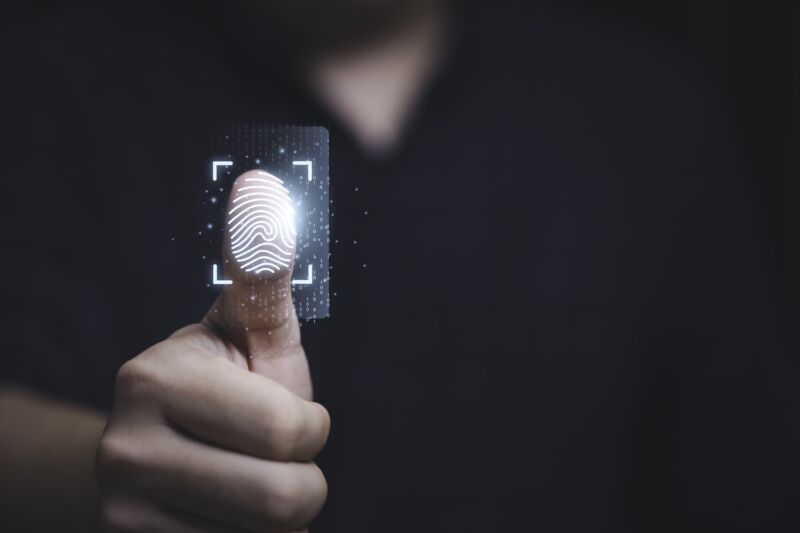
The US Constitution’s Fifth Amendment protection against self-incrimination does not prohibit police officers from forcing a suspect to unlock a phone with a thumbprint scan, a federal appeals court ruled yesterday. The ruling does not apply to all cases in which biometrics are used to unlock an electronic device but is a significant decision in an unsettled area of the law.
The US Court of Appeals for the 9th Circuit had to grapple with the question of “whether the compelled use of Payne’s thumb to unlock his phone was testimonial,” the ruling in United States v. Jeremy Travis Payne said. “To date, neither the Supreme Court nor any of our sister circuits have addressed whether the compelled use of a biometric to unlock an electronic device is testimonial.”
A three-judge panel at the 9th Circuit ruled unanimously against Payne, affirming a US District Court’s denial of Payne’s motion to suppress evidence. Payne was a California parolee who was arrested by California Highway Patrol (CHP) after a 2021 traffic stop and charged with possession with intent to distribute fentanyl, fluorofentanyl, and cocaine.
There was a dispute in District Court over whether a CHP officer “forcibly used Payne’s thumb to unlock the phone.” But for the purposes of Payne’s appeal, the government “accepted the defendant’s version of the facts, i.e., ‘that defendant’s thumbprint was compelled.'”
Payne’s Fifth Amendment claim “rests entirely on whether the use of his thumb implicitly related certain facts to officers such that he can avail himself of the privilege against self-incrimination,” the ruling said. Judges rejected his claim, holding “that the compelled use of Payne’s thumb to unlock his phone (which he had already identified for the officers) required no cognitive exertion, placing it firmly in the same category as a blood draw or fingerprint taken at booking.”
“When Officer Coddington used Payne’s thumb to unlock his phone—which he could have accomplished even if Payne had been unconscious—he did not intrude on the contents of Payne’s mind,” the court also said.
Suspect’s mental process is key
Payne conceded that “the use of biometrics to open an electronic device is akin to providing a physical key to a safe” but argued it is still a testimonial act because it “simultaneously confirm[s] ownership and authentication of its contents,” the court said. “However, Payne was never compelled to acknowledge the existence of any incriminating information. He merely had to provide access to a source of potential information.”
The appeals court cited two Supreme Court rulings in cases involving the US government. In Doe v. United States in 1988, the government compelled a person to sign forms consenting to disclosure of bank records relating to accounts that the government already knew about. The Supreme Court “held that this was not a testimonial production, reasoning that the signing of the forms related no information about existence, control, or authenticity of the records that the bank could ultimately be forced to produce,” the 9th Circuit said.
In United States v. Hubbell in 2000, a subpoena compelled a suspect to produce 13,120 pages of documents and records and respond “to a series of questions that established that those were all of the documents in his custody or control that were responsive to the commands in the subpoena.” The Supreme Court ruled against the government, as the 9th Circuit explained:
The Court held that this act of production was of a fundamentally different kind than that at issue in Doe because it was “unquestionably necessary for respondent to make extensive use of ‘the contents of his own mind’ in identifying the hundreds of documents responsive to the requests in the subpoena.” The “assembly of those documents was like telling an inquisitor the combination to a wall safe, not like being forced to surrender the key to a strongbox.” Thus, the dividing line between Doe and Hubbell centers on the mental process involved in a compelled act, and an inquiry into whether that act implicitly communicates the existence, control, or authenticity of potential evidence.
